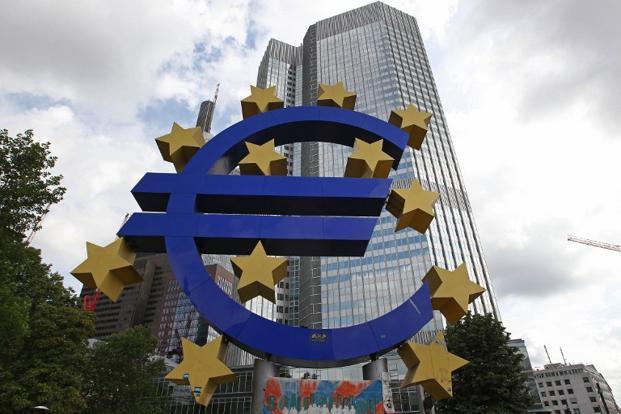Interview with Benoît Cœuré, ECB

Interview with Benoît Cœuré, Member of the Executive Board of the ECB, on 13 January 2015
How concerned are you about the election of a new parliament in Greece resulting in a re-emergence of the euro crisis?
Greece is facing crucial elections, and that can, of course, lead to major changes. That is normal in a democracy. The voters’ will is decisive, and we at the ECB are not going to intervene there. In contrast to the situation that prevailed two or three years ago, however, the euro area is now significantly far more robust. The risks of contagion that might emanate from the Greek financial market are significantly lower today.
That sounds pretty unperturbed. Even though debt relief for Greece is once again being much-debated.
Our position in the respect is clear: we cannot agree to any debt relief involving Greek bonds held by the ECB. We will not even agree to a prolongation of maturities, because we are simply not allowed to do so. That is laid down in the EU Treaties, and we will not deviate from the prohibition of any financing of governments. On this issue, there is no scope whatsoever for concessions and interpretation.
That you would not voluntarily agree to that happening is clear. But what would happen if the new Greek Government were to decide not to make any further repayments, or to leave the Monetary Union?
I will not comment on such speculative scenarios. Nor do I believe it to be in the interests of Greece to go down that road. On the contrary, Greece has a keen interest in remaining a member of the euro and in pushing reforms further forwards.
That may hold true for representatives of Greek industry, but many citizens are highly frustrated because the many financial sacrifices have still not bettered their lot. At the same time, a debate has long since re-emerged in Germany as to whether a Greek exit would not be the better solution.
I regard that as nonsense. Nobody is seriously discussing the issue of Greece leaving the euro area nor is anybody actually seriously preparing for that option. Greece needs the euro, and the euro needs Greece.
To what extent are the parliamentary elections in Athens influencing the monetary policy decisions that the Governing Council will be taking on 22 January, i.e. shortly before the elections?
They have no influence on us whatsoever. Elections there do not change monetary policy.
Would it not be better to wait until the elections have been held – also to prevent a purchase programme for government bonds from being interpreted as a form of financial aid?
Not at all. We are independent, and that also means that we do not link our decisions elections that might be held here and there. We will do what we need to do, and we will do it at the precise time that we deem to be appropriate.
You emphasise that the ECB is not a political institution. But how credible is that, given that the ECB has long become the crisis manager for the euro area?
That risk is indisputable: it is precisely when other parties involved, such as the EU Commission and the national governments, do not take action, or do so only hesitantly, that pressure on monetary policy increases. Prevailing opinion in the Governing Council is, however, that we have not moved beyond the limits of our mandate with our new instruments. But the longer it takes for countries to do their homework, and the longer the economic crisis persists in Europe, the greater is the danger that the pressure on the ECB will rise.
But it is precisely the ECB’s intervention that reduces the pressure on governments to take action.
I see that differently. Our policy does not change the fact that structural reforms are highly necessary. The best incentive for such reforms should be the high level of structural unemployment, on which monetary policy has little impact. In some euro area countries, unemployment rates are in the range of 20% to 25%. If that isn’t an incentive for taking countermeasures, what is? It, of course, makes life easier for governments if they can take on new debt at a lower interest rate. That is why we advocate a strict application of the Stability and Growth Pact. Irrespective thereof, however, we must fulfil our mandate of keeping prices stable.
Conversely then, how dependent is the ECB on the success of governments’ reforms? If no way is found to overcome unemployment and indebtedness, how will the ECB ever be able to return to a normal monetary policy?
Our measures can, of course, only take full effect if the economy and the financial markets work well. That does not change our mandate, but it explains why we occasionally address advice to the political domain, for instance, that the Stability and Growth Pact should be complied with. Unfortunately, we are seldom listened to.
The EU Commission should thus not give Italy, France and Belgium more time to reduce their high budget deficits?
That is matter to be decided by the EU Commission. The current situation, however, is not exactly optimal in this respect. The EU Commission has rightly censured countries like Italy, France and Belgium because they have not met their deficit targets. It has, however, not taken any further measures. That increases uncertainty because nobody knows whether the rules are currently being applied in full or not. The EU Commission should therefore come to an unequivocal decision that ensures the credibility of the Stability and Growth Pact as soon as possible. That does not fall within the mandate of the ECB. Our task is to ensure price stability.
This very aim is now thought by economists to be at risk – in December the price level even fell. Is that already deflation? The ECB’s definition of it seems so far to have been vague.
I would speak of deflation when both prices and output are falling and the problem is getting worse and worse – because people don’t invest or consume when they are waiting for prices to fall further. So far, that hasn’t been the case. However, inflation rates throughout Europe are extremely low and far removed from 2%, from what central bankers define as price stability. We cannot ignore that.
But prices have recently fallen simply because oil has become so much cheaper. Why is the ECB allowing that to put it under pressure to act? You can’t influence short-term fluctuations in the oil price anyway.
A falling oil price is generally a one-off shock, but, first, this time it’s unusually large. Second, inflation was too low even beforehand, and inflation expectations are moving further and further away from 2%, which we aim in our monetary policy to achieve over the medium term.
So you would prefer to ignore the fall in the oil price as you’ve done in the past – but you can’t afford to at the moment?
We do indeed want to screen out short-term effects, but it’s becoming more and more difficult to keep to this. In the current environment, the continuous decline in oil prices increases the danger that people will lose confidence in our inflation target.
But will the ECB be able to achieve much in any case? Even a €1,000 billion government bond programme is forecast to create only 0.1 to 0.5 percentage point more inflation.
This is difficult to forecast. In America, government bond purchases were unquestionably successful. The question is how that can be transferred to a monetary union like ours. We are discussing exactly that.
How can you ensure success in Europe when there are no common bonds for the euro area that you could buy?
This is not a trivial difficulty, but there are definitely solutions to it. The ECB has a mandate to conduct monetary policy for a monetary union with 19 different countries. That makes some things more complicated, but it’s no justification for doing nothing at all.
Would it really be conceivable that the ECB buys bonds not of all 19 countries, but of just those with the best ratings?
We have to weigh this up. On the one hand, the ECB has to limit the risks it takes onto its balance sheet. On the other hand, the bond purchases have to be spread broadly enough to really have an effect on prices and economic development.
As far as the financial markets are concerned, the ECB decided to buy government bonds some time ago, when it announced its intention in December to increase its balance sheet to a maximum of €3 trillion. Was that a good idea?
We had already said before that we expected such a development, and I don’t see a big difference between an expectation and an intention.
So why did you vote against it?
The Council has decided not to make any details on the votes public, and I will adhere to that. But there was no fundamental disagreement on the matter – at most differing views on individual formulations.
How optimistic are you that the discussion will be concluded by 22 January?
Discussions are well advanced. Last week, we discussed lots of technical details. In any case, we will be able to take a decision on 22 January. Which does not mean that we have, in fact, already reached a decision.
There has been struggle over government bond purchases for months. Is this dispute a problem for the credibility of the Governing Council?
Not at all. It is normal that there are different opinions in a Council with 25 members – otherwise, we wouldn’t need the body, we could decide everything in the Executive Board, which has six members.
But even in the Executive Board, there are widely divergent opinions on bond purchases.
If one wanted to avoid that, one person would be able to decide everything on his or her own. But there is good reason why that is not our system. The discussions in the Council and the Executive Board help us to meticulously evaluate the advantages and disadvantages of a decision, especially when it is about something as important as large-scale bond purchases.
Mario Draghi has already made it clear that a bond programme does not have to be agreed unanimously. But would it really be acceptable if such a fundamental step was agreed with a narrow majority?
It would be possible and permissible, but not advisable. The more Council members that agree, the surer I am that we have weighed all the pros and cons of a bond purchase programme properly and have minimised the risks.
The verdict of the European Court of Justice on the earlier bond programme, the OMT programme, is still outstanding; this week the Advocate General will make his recommendations. Do you not fear legal constraints for bond purchases on a larger scale, as are currently being considered?
We still don’t know how the Court will decide. But the final opinion of the Advocate General will give us a certain indication this week.
In the end, it might be confirmed that bond purchases in the secondary market are legal. But economically, they have an effect similar, in many respects, to a prohibited direct monetary financing of governments by means of the printing press. If that is supposed to be unproblematic, do you then find the whole prohibition redundant?
This prohibition might be less important if we had a fiscal union with a common fiscal policy. But as long as that is not the case, the ECB must be prevented from being dominated by the ministers of finance. That is why we need this Treaty article, to protect the independence of the central bank.
Will it necessarily come to this fiscal union sooner or later?
Of course, a fiscal union would make life easier for us as a central bank. But a fiscal union must have democratic legitimacy and be subject to adequate parliamentary control.
It doesn’t exactly appear to be likely at the moment. Could the euro survive as a “currency without a state” in the long run?
The euro can certainly survive. But the system would always be fragile. We would have to get used to there can always be crises in one country with contagion in others. If we want to make progress, we need a common economic policy that also covers the field of structural reform.
Source: ECB – Interview with Benoît Cœuré, ECB





























